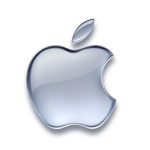iPad is a devil's deal for publishers
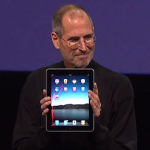
Apple's approach to magazine and newspaper subscriptions and third-party e-book sales stink of the kind of practices that got Microsoft into trouble with trustbusters on two continents during the late 1990s and early 2000s. A year ago, publishers embraced iPad as the savior of their industry. Now iPad looks like a devil's deal instead.
Trouble started three days ago, when Sony said that Apple rejected its Reader software from the App Store in a policy change. Apple responded that there is no policy change. Oh? Well, if there is no overt policy change, it is effectively one of enforcement. Either way, the demands Apple is placing on publishers is too much, and arguably being made from a monopoly position. Essentially, the company wants sales to go through the App Store, which would compel the likes of Amazon and Sony to sell e-books indirectly through Apple and would prohibit magazine and newspaper publishers from offering existing subscribers the benefits of iPad editions without paying more.
Apple's modern success story began with four investments made 10 years ago
Search wars: Microsoft outdoes Google's copying claim by alleging fraud

Uh-oh, the plot thickens in the war of words between Google and Microsoft over pilfered search queries. No less than Yusuf Mehdi, senior vice president of Microsoft's Online Services Division, has piped up a fervent denial. You know what, emotionally, I want to believe him. Mehdi is one of the few at Microsoft I respect, and he doesn't get enough respect inside the company.
He blogged this afternoon: "We do not copy results from any of our competitors. Period. Full stop. We have some of the best minds in the world at work on search quality and relevance, and for a competitor to accuse any one of these people of such activity is just insulting." Well, I'm glad that's cleared up, or is it?
What 'The Daily' means to you

At Noon ET today, News Corp. launched its original iPad newspaper The Daily. During an event that started an hour earlier, News Corp. president Rupert Murdoch said the target audience is the 50 million American users expected to have purchased iPads by end of this year.
The Daily means nothing to you if you don't live in the United States, don't own an iPad or don't plan to buy Apple's tablet. For US iPad users, The Daily builds on some other innovative publications already available for iPad, such as Virgin's Project or Wired. From a user experience perspective, what really differentiates The Daily, immediately anyway, is the subscription model -- "14 cents a day," Murdoch says. Right now, iPad publications like The New Yorker and Wired are only available on one-off bases, and they cost lots more.
There's nothing unusual about Microsoft reverse engineering Google search results to improve Bing, but is it right?

When Microsoft announced its July 2009 search deal with Yahoo, and even before, Steve Ballmer said the increased scale would help improve the quality of Bing search results. Perhaps Microsoft's CEO was wrong, or Yahoo search didn't give enough scale. Bing started serving up Yahoo search results late last year. But Bing also is serving up Google results, as was widely reported yesterday. How desperate is that -- or is it, gasp, clever?
To briefly, recap: Yesterday morning, at Search Engine Land, Danny Sullivan reported that "Bing has been watching what people search for on Google, the sites they select from Google's results, then uses that information to improve Bing's own search listings. Bing doesn't deny this." They say imitation is the greatest form of flattery, but c`mon, what's right about this and wrong with the math behind Microsoft's search algorithm?
It's a photo finish: Android, BlackBerry and iOS are tied in US smartphone share

Which smartphone operating system truly leads the US market. According to Nielsen, none of them. Says Don Kellogg, Nielsen's Telecom Practice Research and Insights senior manager, it's a "three-way tie" between Apple's iOS, Google Android and Research in Motion's BlackBerry OS. Oh, man, it is going to be a bad day for fanboy jockeying for position.
Nielsen strips back any potential contention about unit shipments and focuses on install base. By that measure, among US smartphone owners, 28 percent have devices with iOS and 27 percent each for Android and BlackBerry OS (data is from December 2010). But as the chart above shows, the long-term trend is revealing. Since February 2010, iOS has remained largely flat, with sine-wave like fluctuations between 26 percent and 29 percent install base share, that despite the June 2010 launch of iPhone 4. During the same time period, Android's install base steadily rose from 8 percent share. Meanwhile, BlackBerry OS has steadily declined -- from 39 percent share measured by install base.
How long before Apple stops selling desktop Macintosh?
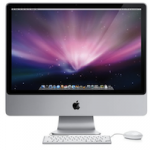
It's a reasonable question to ask, now that, after today, Apple will no longer sell Xserve rack-mount servers. Apple is a far different company in 2011 than it was when Xserve launched about nine years ago. Xserve's ending foreshadows another: The sun setting on immobile Macintosh. Desktop be gone.
During Apple's fiscal 2011 first quarter, iOS devices accounted for about two-thirds of revenue. In the same quarter six years earlier Macs accounted for 45 percent of Apple revenue. In Q1 2007: 34 percent. A year ago: 28 percent. Q1 2011: 20 percent. The Macintosh isn't as important to Apple's bottom line as it once was.
Strategy Analytics' Apple and Samsung market share analysis is fair
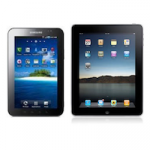
Must everything be partisan? In the US Congress, Democrats and Republicans spilt over nearly every issue. Today's strangest debate isn't political, but analytical -- sides supporting or opposing Apple and bloggers and journalists parlaying games of oneupmanship. It's all about how much tablet market share Samsung snatched from Apple during calendar fourth quarter, if any. The debate is simply pointless.
Earlier today, Bloomberg reported on data from Strategy Analytics stating that Android tablets captured 22 percent market share in Q4, based on 2.1 million shipments, essentially punching market leader iPad smack in the touchscreen. By Strategy Analytics' reckoning, iPad's market share dropped from 95 percent to 75 percent in a single quarter.
Canalys: Android tops Symbian in smartphone shipments -- twice as many units as iPhone

Android's ascendency to smartphone supremacy hit a new high in fourth quarter 2010, according to research firm Canalys. Global Android smartphone shipments topped Nokia Symbian-based handsets -- 32.9 million to 31 million, respectively -- or twice iPhone (16.2 million). By another accounting, including OMS and Tapas platforms, Google ranked higher still: 33.3 million units.
Canalys' shipment data means Google is activating more than the previously disclosed 300,000 Android handsets per day. The number exceeds 350,000. During Q4, just two manufacturers, HTC and Samsung, accounted for 45 percent of "Google OS-based handset shipments," which includes OMS and Tapas.
Steve Jobs' health is not a private matter
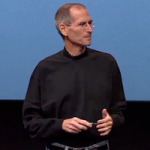
Sadly, I must reaffirm my position stated during Apple CEO Steve Jobs' last medical leave, in January 2009: His health situation isn't a private matter, and, frankly, it's even less so now. The seeming suddenness of Jobs' more recent medical leave, which this time is open-ended, raises reasonably disconcerting questions about how long he can continue as chief executive and whether Apple has in place an appropriate succession plan. I didn't expect to return to this topic again, and surely Macheads will beat me aside the head with snide and accusing comments or rebuttal blog posts. So be it.
As leader of a public company, Jobs has no inherent right to privacy where his ability to act as CEO is concerned. Jobs' share in Apple was, last time I checked, well below 5 percent. He isn't principal owner of Apple, tens of thousands of shareholders are. If not Jobs, then at least Apple's board of directors has a responsibility to appraise shareholders about such an iconic CEO's realistic ability to continue in the role. Right now, Jobs has essentially abdicated the responsibility for an undetermined amount of time. In a January 17 letter, Jobs explained that he had "asked [COO] Tim Cook to be responsible for all of Apple's day to day operations." Not some responsibility but all.
Three important takeaways from Microsoft's $19.95B record quarter

Microsoft announced fiscal 2011 second fiscal quarter results after the stock market closed yesterday. The company reported $19.95 billion in revenue and $6.64 billion net income. Business and Entertainment & Devices divisions reported enormous revenue gains, while Windows & Windows Live can only be described as abysmal. Overnight, I took another look at the numbers, from which I want to highlight three takeaways.
Wall Street didn't respond favorably to Microsoft's quarterly report, but that's typical. It doesn't seem to matter how good are the results, Wall Street won't give Microsoft a break. As I post, Microsoft shares are down 4 percent in late-day trading.
Samsung and ZTE shift the spotlight from Apple in Q4 mobile phone shipments

Samsung and ZTE were big winners selling mobile phones in 2010, based on new data released by IDC. Apple fell from fourth to fifth place. Smartphone shipments drove year-over-year growth to a new quarterly high -- 17.9 percent -- in fourth quarter. Unit shipments rose from 340.5 million units to 401.4 million. IDC measures shipments into the channel, which means unsold handsets are counted. Gartner should soon release actual sales data, for which the numbers will be lower.
For the year, manufacturers shipped 1.39 billion cell phones, up 18.5 percent from 1.17 billion units a year earlier. The United Nations estimates there are 5 billion cellular subscribers worldwide. IDC predicts that smartphones will be the major sales growth driver through 2014. This year, smartphone shipments are projected to rise by nearly 44 percent year over year.
Microsoft Q2 2011 by the numbers: Record $19.95B revenue, 77 cents EPS

[Editor's Note: This was a live document from 4:20 p.m. EDT until 5:40 p.m.]
Microsoft weathered the brunt of slower-than-forecast PC sales to beat Wall Street consensus for fiscal 2011 second quarter. The software giant announced earnings after the bell, for the three-month period ended Dec. 31, 2010.
Confessions of a former Nokia enthusiast

I love Nokia. It's a global brand with huge, but rapidly declining, global presence. Nokia brought advanced capabilities, like quality photography, video recording and video calling, to its handsets long before competitors. For years, Nokia defined mobile innovation at both ends of the market -- providing quality, affordable handsets to the masses and cutting-edge feature phones to enthusiasts. That was then. I love Nokia, but Nokia doesn't love me.
Nokia is rapidly bleeding market share, and its once hallowed brand is being hollowed by Apple and competitors like HTC and Samsung that ship Android smartphones. By Nokia's own estimates, its share of the global smartphone market fell to 31 percent during fourth quarter 2010. Nokia's decline is much less about Androids and iPhone and more about the Finnish handset maker falling behind in software and services, and in process losing developer and even customer confidence.
Did you miss out on the Chrome OS notebook? Psst, you can still get one

A fair number of Betanews readers have asked how they could get Google's unbranded Cr-48 notebook running Chrome OS. On Dec. 7, 2010, the information giant announced a pilot distributing 60,000 notebooks -- a grand test for those folks ambitious enough to live on the web for as long as six months. I assumed that Google had given out all the laptops. Either it didn't or there's a new batch to be had.
In a blog posted late this afternoon Eastern Time, Heaven Kim, Google product marketing manager, writes: "If you already live on the web and are itching to get your hands on a Chrome notebook, we've teamed up with a few Web Store apps for a chance to test-pilot the Cr-48. Check out blog posts from MOG, Box, LucidChart, and Zoho for more details. Then go ahead and rock out with 10 million songs, manage your files in the cloud, perfect your diagram drawing skills or move your office onto the web. While you're at it, you might also discover a new favorite app among the more than 2,000 apps in the Chrome Web Store."
Joe's Bio
Joe Wilcox is BetaNews executive editor. His motto: Change the rules. Joe is a former CNET News staff writer, JupiterResearch senior analyst, and Ziff Davis Enterprise Microsoft Watch editor.
Ethics Statement© 1998-2024 BetaNews, Inc. All Rights Reserved. Privacy Policy - Cookie Policy.

